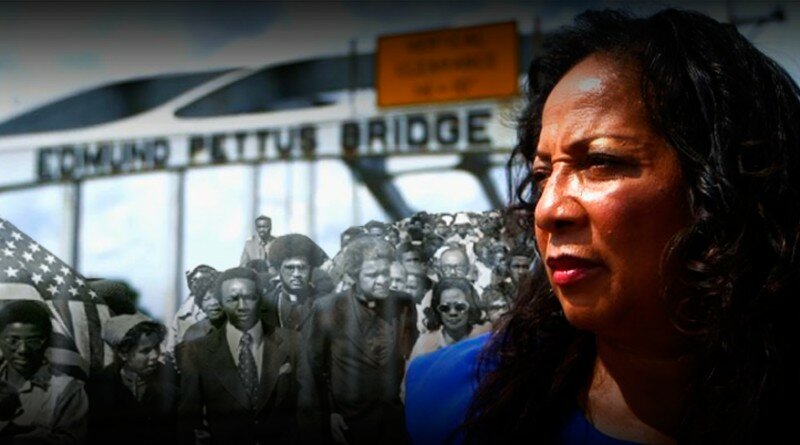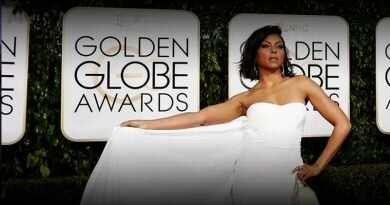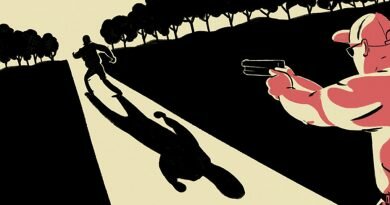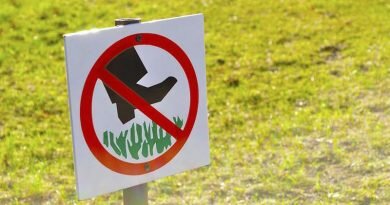blackmattersus.com
Your nickname, The Smallest Freedom Fighter, could you tell us where it came from and how you got this name?
Sheyann Webb
The Smallest Freedom Fighter name came from Dr. Martin Luther King when I was a little girl growing up in the Selma Civil Rights Movement. I was not like the ordinary child. I actually was a child who was very disobedient to my parents and even to my teachers at school because I wanted to be a part of what was then the civil rights movement in Selma. And it wasn’t ordinary that you see little children my age there in the midst of adults because you had to be very courageous. As I had met Dr. Martin Luther King, the many times that he would come to Selma he would see me, and he named me his Smallest Freedom Fighter.
blackmattersus.com
Do you remember your first meeting with Dr. Martin Luther King Jr.?
Sheyann Webb
Yes, I have vivid memories of meeting Dr. King. I was playing in front of Brown Chapel Church as I would normally do, and on this particular day my best friend Rachel and I were two stops from this very unusual happening, there was this very beautiful car that had driven off in front of Brown Chapel Church and it gravitated our attention as children. Actually we started walking towards those cars as they parked in the front, and there was this one man who was with the entourage and he looked at us and asked us if we knew that man that was standing by him – there were two other men. We didn’t know who any of them were, and he said to us very profoundly that this is Dr. Martin Luther King Jr. We didn’t know much about Dr. King or any of them and Dr. King immediately started talking to us asking us the general questions that they would ask children: what were our names, how old we were, what school we went to. He continued to talk to us as he and his entourage would make their way to the rear of Brown Chapel Church to have a strategy meeting and even when we got inside the church, he continued to talk to us and that’s how it all started for me.
blackmattersus.com
What was your first impression of him?
Sheyann Webb
My first impression of Dr. Martin Luther King Jr. and meeting him as a child was he was exciting, you know, for a child, because he gave us some special attention. And it seemed to me even from a child’s perspective that he was very, very special, even the way that those who were surrounding him, how they were acting towards him. So he became very special to me instantly.
blackmattersus.com
You’ve said in other interviews that on the day he was shot, you came home and noticed that something was wrong. How did you feel after discovering the news?
Sheyann Webb
I’ll never forget when I had opened the door to my home and my family members who were there, they looked directly at me with sad faces and I knew something was wrong. Didn’t know quite what it was, but before I could even ask what was wrong, there was something that came over the TV, the news they were watching, saying that Dr. Martin Luther King had been shot and killed. Actually it was a shock to me and I started crying and trying to find out what had happened and why, and I reflected on the songs that we used to sing during those times:
Oh freedom, oh freedom, oh freedom over me
And before I’d be a slave,
I’ll be buried in my grave
And go home to my Lord and be free.
And I thought about that song, and I thought about some of the things that I had heard Dr. King talk about and that’s when I understood from my parents trying to explain to me what had happened. I reflected on that song, Dr. King used to talk about how he would give up his life to be free and to free others and that’s what he did. And it was just a real sad time for myself and the world.
blackmattersus.com
Do you remember your first march? What was it like?
Sheyann Webb
Well, my first march was downtown Selma. From a child’s perspective, it was something that I didn’t know what to really expect and again, me still being a child who was to turn up at that event, nobody turned me around because I wanted to be among those courageous people who had come to Selma in an effort for African Americans to gain their right to vote. And I remember again, being disobedient to my parents and going out to Brown Chapel Church with the marchers, and special instructions were given so there was always a philosophy of non-violent protests that were being instructed before everyone, and this was the same that I heard about this particular march. Based upon the courageous people who were there, there was always a possibility of something that could happen and me being a child, I didn’t know the gravity of it. All I knew was that I just wanted to march with them and I wanted to be a part of them. I remember marching downtown to the courthouse and I do remember as that little girl, seeing a lot of things that my parents used to talk about and I heard others talk about, you know, how people call people names, white cow, big nose, African American niggers, and I just saw a lot of wrong things that happened on the sidelines. But it all encouraged me more and helped me to understand why we were there.
blackmattersus.com
So would you say that the freedom that you dreamed of, that you went out to fight for has been achieved fully, considering the fact that there’s still racial discrimination in many areas of our lives including healthcare, education and housing?
Sheyann Webb
I think that all those things that we fought and struggled for in the 60s haven’t truly been fulfilled because of course Black people or African Americans wanted to be treated equally, they wanted to have their right to vote, they wanted not to be discriminated against when it came to jobs and other opportunities. I mean there were so many things during that time that were so unequal. And when I reflect on what we fought for then and based on what’s going on today, it’s not the best thing going on. I do think that much progress has been made, politically, socially, but I think there’s still much work to be done. When we look at what we’re being challenged with today, all over the country there’s racism, economic issues, health issues – Medicare, Medicaid – and job opportunities, there’s still a lot more to be desired. And particularly with racism, that was what helped to create a lot of the things that African Americans weren’t even afforded. That’s still existing today. It really saddens me as I travel across the country to know and to see and to hear the cries of many, not only African Americans, but whites and others from other backgrounds to question and try to find answers why this is still happening now. So we’re still being faced with much of the same 51 years later, and I think it’s even on a larger scale. It’s just truly, truly blatant and there’s a real concern out there.
blackmattersus.com
What do you think about the current spate of police brutality and the protests that accompany them? Are there any parallels to the civil rights movement?
Sheyann Webb
Yes, I do think that there are some similarities. I do feel that back in the 60s you had just total racial discrimination when it came to police brutality. But for much of the same in terms of people who were in the struggle, fighting and protesting for what they believe was right and them standing on their convictions, the only thing that’s a little different today is that you have people protesting a lot more even though we have gained many of those rights. We have people protesting more now for racial profiling, and for all of the violence and killings that have been done so wrongly and unjustifiably by policemen both Black and white. Back then it was basically white. And it’s not to say that all policemen are bad, I don’t agree with some sentiments of people saying that there’s total chaos with the police department. It’s just that there are bad apples in many given situations and unfortunately we have it in the police field which is very critical. And the thing that’s really bad about it is that it’s not happening in one segment, it’s happening all over the country, and something very significant has to be given attention to in a different way – and I don’t know what that answer is – in order for the country to see that there’s got to be some type of change to this police brutality, violence and killings, because if not, it’s just going to get worse.
blackmattersus.com
So do you currently take any part in protests?
Sheyann Webb
The part that I take, is in giving many young people as I speak to them across the country, the best advice in terms of being very strategic, organized, and non-violent in their protests. I believe in the Black Lives Matter organization. I truly know that all lives matter as well and it’s something that those who have the character and leadership that at least they realize that as well, so I get the opportunity to speak and dialogue with many young people who are protesting, who have protested across the country in terms of using the right strategies in order to get the best results.
blackmattersus.com
Let’s talk about your book. What inspired you to write it?
Sheyann Webb
What inspired me to write that book, number one is, as that little girl growing up and during those turbulent times, I’d just deride in my own childish ways about what I witnessed and what I experienced as a child and based upon those writings, there was this news reporter from the Birmingham News whose name was Frank Sikora, he came to talk to us about the possibility of a book being written. And after he looked at many of the things that I had written, I think his interest was inspired by the little girl that he used to see in the pictures which was myself and my best friend Rachel. That’s how the book was created.
blackmattersus.com
How would you compare growing up now as a Black kid in America to growing up back in the 60s?
Sheyann Webb
Well, I think growing up in the 60s there weren’t many opportunities as there are now for African Americans even though I still can see much of the same challenges that we talked about earlier. I still think that racism is still at an all-time high, a lot of things are under the surface but yet in this political chaos, you can see that a lot of racism has really unfolded itself. And it has not set a good precedent particularly when it comes to being the role models that so-called leaders are supposed to be for our younger generation. So I see much of the same that’s happening, I just see greater opportunities that have to be really thought through when it comes to an African American in a different way. It has to be thought through by the more intellectual approach because still African Americans are not getting the jobs and opportunities in many instances that they should as African Americans, health care – the health care bill, our political motion has seen a number of issues when it comes to the political side, I think President Obama has done a great job in bringing the Obama care in but there’s still those who see that poor people shouldn’t get the assistance that they need when it comes to economics. There are a lot of poor people across this country and particularly in the cities like Selma, Birmingham and other places where people died and struggled, shed much blood and tears. There’s still much work to be done so in comparison for Black African Americans, I still see much of the same happening today.
blackmattersus.com
Our readers are mostly Black young people. Do you have anything you’d like to say to them?
Sheyann Webb
I think that it’s so important for young people to know that they have a lot to contribute to this world because they bring special talents and abilities to this world. And with that they need to understand how critical it is for them to get the best education that they can and in the process of getting the best education that they can, they need to know that they’re at the right point and the right time to implement plans, to make sound decisions, and to do those things that can make lives better for all of us because we’re depending on them. They are the voices of hope, they are the vessels of change and they are the young people that we’re looking for, based upon the best leadership qualities that they have, to be the instruments of peace and progress that we need right now in this society.








